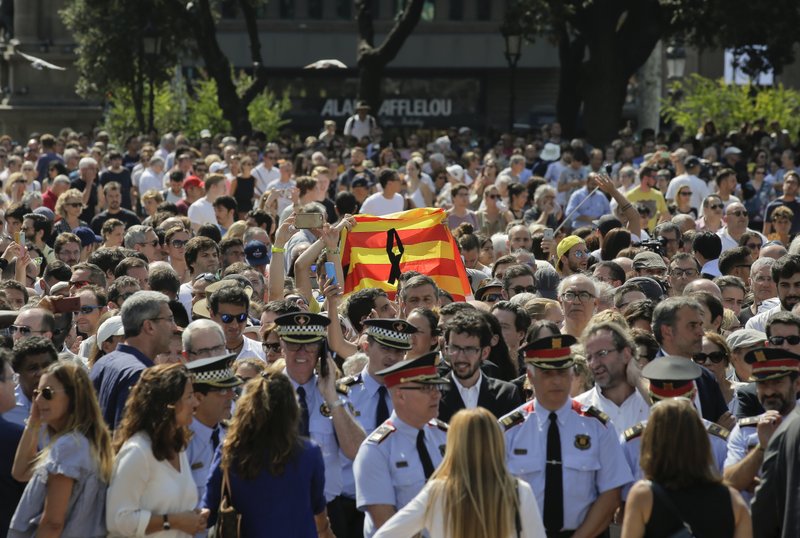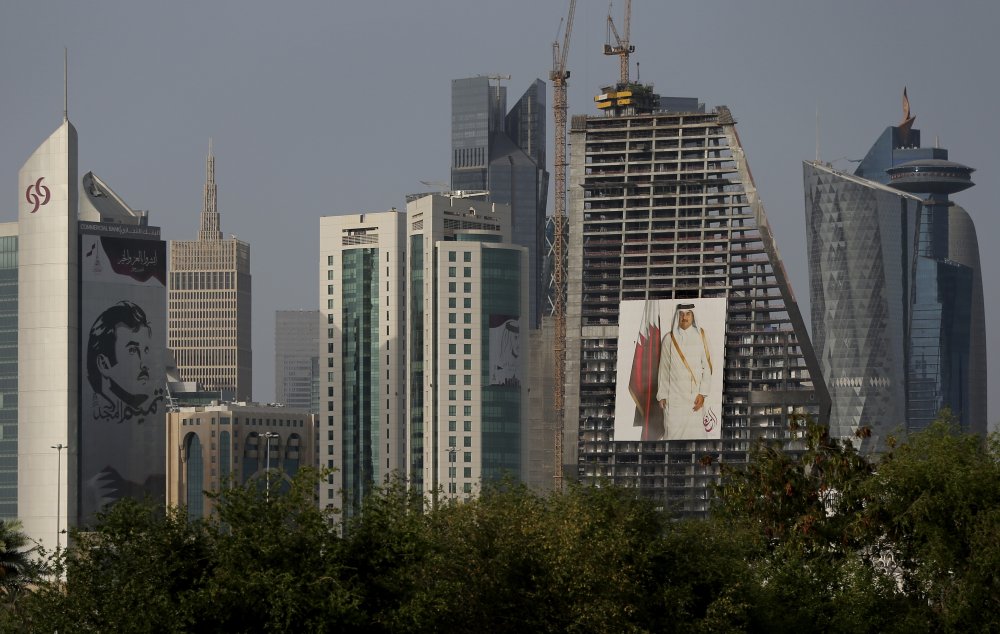
A Qatari exile wants to discuss the possibility of a “bloodless coup” amid a diplomatic dispute pitting Doha against other Arab nations. Another exile, a little-known Qatari ruling family member, meets with Qatar’s main foe Saudi Arabia and immediately gets suggested as a replacement for Doha’s ruling sheikh.
However, whether Khalid al-Hail’s planned conference or Sheikh Abdullah Al Thani’s sudden prominence represents any bloc within Qatar remains an open question.
The rise of these Qataris exiles and others criticizing the energy-rich sheikhdom shows the fundamental challenge in trying to find opposition voices in Gulf Arab nations where political parties are illegal.
Exiles like al-Hail dismiss any sign of public support of the government as the coercive fear of the secret police. Those supporting the region’s hereditary rulers can in turn dismiss the exiles as puppets of their opponents, in Qatar’s case Bahrain, Egypt, Saudi Arabia and the United Arab Emirates.
Meanwhile, the Qatar crisis grinds on without an end in sight, pitting the home of a major US military base against other American allies, a Gulf political parlor game once only conducted behind closed doors.
“These sorts of things have always happened, but they weren’t so vocal and publicly displayed,” said Cinzia Bianco, a London-based analyst for Gulf State Analytics. “It really complicates things because at the end of the day, you’ve really involved the whole world … but nobody’s really able to help you solve the dispute.”
Al-Hail is the latest exile to emerge amid the Qatar crisis, which began June 5 with boycotting nations cutting off Doha’s land, sea and air routes over its alleged support of extremists and close ties to Iran. Qatar long has denied funding extremists and recently restored full diplomatic relations with Iran, with whom it shares a massive offshore natural gas field that made the country and its 250,000-odd citizens fantastically wealthy.
A London conference planned by al-Hail for Sept. 14 will include discussions about how to make Qatar a constitutional monarchy, as opposed to one ruled absolutely by its emir, he said. That will include talk about a “bloodless coup” supplanting the country’s ruling emir, Sheikh Tamim bin Hamad Al Thani, though al-Hail stressed his fledgling movement was peaceful. He did not offer specifics about how many people supported his plans, though he said that countries now opposing Qatar did not fund his activities.
Qatar’s government did not respond to a request for comment.
Since the crisis began, there have been signs of public support for Sheikh Tamim in Doha. Stencil drawings of emir adorn public spaces across the peninsular nation, which juts out like a thumb into the Persian Gulf. Many people have signed their names on the drawings or written words of encouragement.
Al-Hail said those signs of support come from fear of speaking out against the country’s government. He noted the case of poet Muhammad ibn al-Dheeb al-Ajami, who was imprisoned in 2011 for reciting a poem that apparently offended the government of the nation’s former ruler, Sheikh Tamim’s father Hamad. Al-Ajami saw his life sentence later reduced to 15 years before receiving a royal pardon from Sheikh Tamim and being freed in March 2016.
“I tried personally to speak out on Qatar and I ended up in jail. Many other people tried it and they ended up in jail,” he told The Associated Press in an interview. “The average (person) is really afraid of the police state in Qatar. If you want to ask, ask the other voice, the people who live in exile, the people who are at least free to say whatever they can say.”
However, it is likely al-Hail has no influence at all within Qatar, said Gerd Nonneman, a professor of international relations and Gulf studies at Georgetown University in Qatar. Nonneman noted al-Hail’s previous efforts at launching an organization called the Qatari Youth Rescue movement from Cairo had little effect.
“He’s really coming from nowhere, just like the others,” Nonneman said. “What I’m observing is the UAE or Abu Dhabi or Riyadh using these guys to cause further ripples.”
Al-Hail isn’t the first exile to emerge in the crisis. The most prominent so far has been Sheikh Abdullah, whose high-profile visits with Saudi King Salman and Crown Prince Mohammed bin Salman came as Saudi Arabia allowed Qataris pilgrims over the border in August for hajj, a pilgrimage required of every able-bodied Muslim once in their lives.
Sheikh Abdullah’s grandfather, father and brother were rulers of Qatar until a palace coup ousted his branch of the royal family in 1972. His last position in government was as head of the equestrian and camel racing federation decades ago, Nonneman said.
In recent days, Saudis have been suggesting Sheikh Abdullah should rule Qatar as an emir in exile. Among the most prominent voices to back the idea is Salman al-Ansari, whose Washington influence firm the Saudi American Public Relation Affairs Committee recently signed a $1.2 million contract with Bahrain to produce videos and material about “adversary countries in the Middle East.” Already, al-Ansari’s committee has spent tens of thousands of dollars on television advertising in the US criticizing Qatar.
All of this, the advertising and the exiles, is likely aimed at needling rather than overthrowing Sheikh Tamim, Bianco said.
“They want to put him under pressure as much as possible and just convince him that it’s more convenient for him to basically fold and change completely his behavior,” the analyst said.




